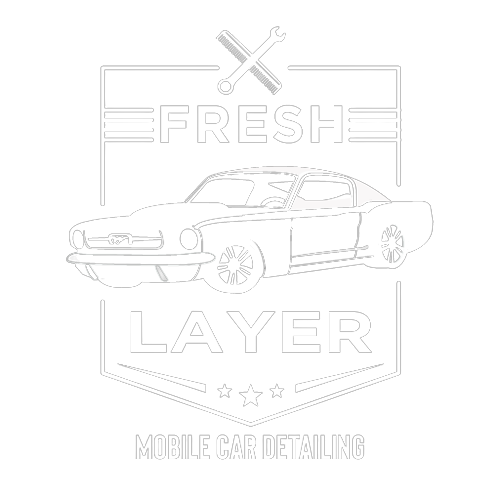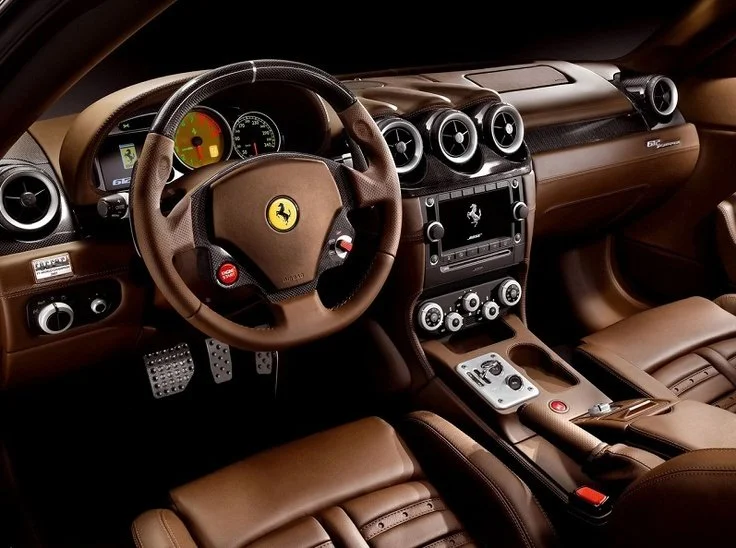Car Detailing Dilution Calculator for Detailing Perfection!
Do you ever struggle to achieve that perfect balance between cleaning power and safety when using detailing products? Unleash the full potential of your detailing arsenal with our free, user-friendly dilution calculator!
Why Dilution Matters:
Just like a master chef uses precise measurements to create a culinary masterpiece, detailers rely on exact dilution ratios to maximize the effectiveness and safety of their cleaning solutions.
Using a product at the wrong concentration can lead to:
Subpar Cleaning: Ineffective cleaning power leaves dirt and grime behind.
Potential Damage: Overly concentrated solutions can damage delicate car surfaces.
Wasted Product: Improper dilution leads to using more product than necessary.
The Fresh Layer Dilution Calculator to the Rescue!
Fresh Layer's innovative dilution calculator takes the guesswork out of mixing your detailing solutions. Here's how it empowers you:
Effortless Dilution Ratios: Simply select the detailing product and desired application (heavy cleaning,maintenance wash, etc.).
Precise Measurements: The calculator instantly calculates the exact amount of product concentrate and water needed for your chosen dilution ratio and container size.
Universal Compatibility: Whether you're a seasoned professional or a detailing newbie, this tool caters to all experience levels.
Dilution Ratio Calculator
How to Use the Dilution Calculator: A Step-by-Step Guide
Using a dilution calculator can streamline your car detailing process by ensuring that you mix your cleaning and detailing products to the correct ratios. This guide will walk you through the steps to effectively use the Car Detailing Dilution Calculator to achieve optimal results.
Step 1: Access the Calculator
Navigate to the web page where the Car Detailing Dilution Calculator is hosted.
The interface is user-friendly and designed to be intuitive for professional detailers and enthusiasts alike.
Step 2: Input Container Size
Enter the total volume of the container in which you will mix your solution. This could be in liters, milliliters, or ounces, depending on your preference.
Ensure that you select the correct unit of measurement from the dropdown menu to avoid any calculation errors.
Step 3: Enter Dilution Ratio
Input the dilution ratio required for your specific product. The dilution ratio is typically provided on the product label and is expressed in a format such as 1:10, which means one part product to ten parts water.
Make sure to enter the ratio exactly as specified for your particular detailing product.
Step 4: Calculate
Click the "Calculate" button to compute the amounts needed.
The calculator will automatically display the volume of the product and the volume of water required to achieve the specified dilution ratio.
Step 5: Mix Your Solution
Use the calculated volumes to measure out your product and water.
Mix thoroughly to ensure the product is evenly distributed within the water, creating an effective solution for your detailing needs.
Step 6: Application
Apply the solution as directed by the product’s usage instructions. This might involve spraying, wiping, or another application method, depending on the type of product being used.
Step 7: Reset (if needed)
If you need to make a new batch with different parameters, use the "Reset" button to clear all input fields.
Start again from Step 2 as required.
Additional Tips:
Always use clean measuring devices to ensure the accuracy of your dilutions.
For best results, use distilled or deionized water, particularly when diluting products that will be used in the final stages of detailing, such as waxes or sealants.
Record your most commonly used dilution ratios and volumes for quick reference in future detailing sessions.
By following these steps, you can utilize the Car Detailing Dilution Calculator to make precise and effective dilutions, enhancing the quality and efficiency of your car detailing workflow.
Common Dilution Ratios for Car Detailing Products
Common Dilution Ratios for Car Detailing
A Quick Reference for Shampoos, Degreasers, and Wheel Cleaners
Shampoos and Soaps
General Cleaning: 1:100 for lightly soiled vehicles.
Heavy Cleaning: 1:50 for tougher dirt and grime.
Degreasers
Engine and Undercarriage Cleaning: 1:4 for heavy grease and oil removal.
Spot Cleaning: 1:10 for oils and stains on floors or driveways.
Wheel Cleaners
Standard Wheel Cleaning: 1:5 for regular maintenance of brake dust and road grime.
Heavy-Duty Cleaning: 1:3 for heavily soiled or long-unwashed wheels.
Understanding the proper dilution ratios for car detailing products is crucial for achieving optimal results without wasting product or potentially damaging vehicle surfaces. Below, you'll find a guide to some of the most common dilution ratios used for key car detailing products such as shampoos, soaps, degreasers, and wheel cleaners.
Shampoos and Soaps
General Cleaning: For regular washing of lightly soiled vehicles, a dilution ratio of 1:100 (product to water) is typically effective.
Heavy Cleaning: For more heavily soiled vehicles, a stronger ratio, such as 1:50, can be used to cut through tougher dirt and grime.
Degreasers
Engine and Undercarriage Cleaning: Degreasers require a robust dilution ratio, often around 1:4 for heavy grease and oil removal.
Spot Cleaning: For spot cleaning of oils and stains on driveways or garage floors, a lighter dilution of 1:10 may suffice.
Wheel Cleaners
Standard Wheel Cleaning: Most wheel cleaners are effective at a dilution ratio of 1:5, suitable for regular maintenance cleaning of brake dust and road grime.
Heavy-Duty Cleaning: For especially dirty wheels or for cleaning wheels that haven't been washed in a long time, a stronger dilution such as 1:3 might be necessary to effectively break down accumulated materials.
Guidelines for Using Dilution Ratios
Always Read Labels: Before applying any product, always read the manufacturer’s label. The recommended dilution ratios can vary significantly between different brands and formulations.
Test First: Always test a small, inconspicuous area first with the diluted product to ensure there is no adverse reaction with the surface.
Adjust as Needed: Consider environmental factors such as temperature and humidity, as they can affect the performance of the cleaning product. Adjust dilution ratios based on your specific conditions for best results.
By following these guidelines and adjusting as necessary, you can ensure that your vehicle is cleaned effectively and safely, extending its life and enhancing its appearance.
FAQs About Dilution in Car Detailing
When it comes to car detailing, proper dilution of products is essential not only for effective cleaning but also to ensure safety and cost-efficiency. Here are some frequently asked questions about dilution in car detailing:
-
Diluting car detailing products is important for several reasons:
Safety: Prevents the over-concentration of chemicals, which can damage vehicle surfaces or pose health risks.
Efficacy: Ensures optimal performance of the products, as most are formulated to work best at certain concentrations.
Economy: Saves money by extending the volume of the product, reducing the cost per use.
-
No, different products have different optimal dilution ratios based on their chemical composition and intended use. Always refer to the product’s label for recommended dilution guidelines.
-
The best way to ensure correct dilution is to follow the manufacturer’s instructions. Additionally, for professional detailers, using measuring tools such as dilution bottles with marks or mixing charts can help achieve precise ratios.
-
Stop using the product immediately, and rinse the affected area with plenty of water. Contact the manufacturer for advice on product use and check if there was a misunderstanding or error in dilution. Always perform a spot test in an inconspicuous area before full application to minimize potential damage.
-
Yes, water quality can significantly affect how a product performs. Hard water, containing high levels of minerals, can inhibit the effectiveness of cleaning agents. Using distilled or deionized water can provide more consistent results, especially with shampoos and soaps.
-
Under-diluting a product can lead to several issues:
Increased Risk of Damage:
Stronger concentrations can harm vehicle finishes, plastics, and rubber.
Safety Hazards:
Higher chemical concentrations may pose health risks through fumes or direct contact.
Waste of Resources:
Using more product than necessary increases costs unnecessarily.
Ready to transform your detailing routine?
Try our Car Detailing Dilution Calculator today! Simplify your workflow, ensure accuracy in your product usage, and achieve professional-quality results every time. Whether you're a seasoned pro or a passionate enthusiast, our calculator is designed to take the guesswork out of mixing and applying your detailing solutions. Don't wait—optimize your detailing process now and see the difference for yourself!




